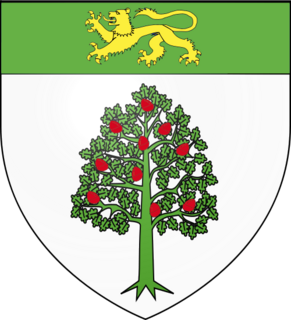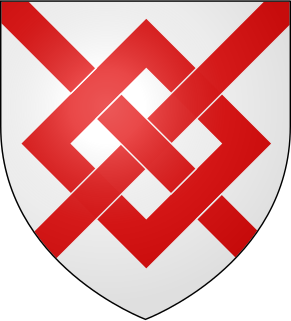
Murphy is an Irish surname.

Blake is a surname or a given name which originated from Old English. Its derivation is uncertain; it could come from "blac", a nickname for someone who had dark hair or skin, or from "blaac", a nickname for someone with pale hair or skin. Another theory is that it is a corruption of "Ap Lake", meaning "Son of Lake".

Clark is an English language surname, ultimately derived from the Latin clericus meaning "scribe", "secretary" or a scholar within a religious order, referring to someone who was educated. Clark evolved from "clerk". First records of the name are found in 12th-century England. The name has many variants.
Lee is a common surname in English-speaking countries.
Bradley is an English surname derived from a place name meaning "broad wood" or "broad meadow" in Old English.
Brennan is an Irish surname which is an Anglicised form of two different Irish language surnames—Ó Braonáin and Ó Branáin. Historically, one source of the surname was the prominent clan Ua Braonáin (O'Brennan) of Uí Duach (Idough) in Osraige who were a junior Dál Birn sept stemming from a younger son of Cerball mac Dúnlainge (d.888). Recent surname evaluations highlighted the geographic consistency of this lineage in the barony of Idough.
Marques or Marqués may refer to:
Davies is a patronymic Welsh surname. It may be a corruption of Dyfed, itself a corruption of Dési, colonists from south-east Ireland who occupied the old tribal area of the Demetae in south-west Wales in the late third century AD, establishing a dynasty which lasted five centuries. Dyfed is recorded as a surname as late as the 12th century for e.g. Gwynfard Dyfed, born in 1175. 'Dafydd' appears as a given name in the 13th Century, e.g. Dafydd ap Gruffydd (1238–1283), Prince of Wales, and Dafydd ab Edmwnd, Welsh poet. The given name 'Dafydd' is generally translated into English as 'David'. Alternatively it may derive from David, the name of Wales's patron saint. In Wales Davies is standardly pronounced DAY-vis, that is, identically to Davis. This pronunciation is also used by many outside the United Kingdom, where it competes with the spelling pronunciation DAY-veez, which is particularly common in the US.
Ellis is a first name and surname of Welsh and English origin. The surname was first recorded in 1202 in Lincolnshire, England. An independent French origin of the surname derives from the phrase fleur-de-lis.
Schmidt is a common German occupational surname derived from the German word "Schmied" meaning "blacksmith" and/or "metalworker". This surname is the German equivalent of "Smith" in the English-speaking world.
The surname Young has several origins.
Tyler is an English name derived from the Old French tieuleor, tieulier and the Middle English tyler, tylere. The name was originally an occupational name for one who makes or lays tiles. It is used both as a surname, and as given name for both sexes. Among the earliest recorded uses of the surname is from the 14th century: Wat Tyler of Kent, South East England.
Harrison is a common patronymic surname of English origin. It may also be spelled Harrisson, Harryson or Harrysson. Harrison means "son of Harry". Early records suggest that the surnames Harrison and Harris were used interchangeably by some families. Harrison is the 42nd most common surname in England and 123rd most common in the United States. The first known recording of the surname had been dated from 1355 in London, England.
Thompson is a patronymic surname of English and Scottish origin, with a variety of spellings, meaning "son of Thom". An alternative origin may be geographical, arising from the placename Thompson. Thom(p)son is the English translation of MacTavish, which is the Anglicised version of the Gaelic name of MacTamhais. During the Plantation period, settlers carried the name to Ireland. It is the 14th most common surname in the United Kingdom and 23rd most common in the United States. According to the 2010 United States Census, Thompson was the 23rd most frequently reported surname, accounting for 0.23% of the population.
Mitchell or Mitchel is an English and Scottish surname with two etymological origins. In some cases the name is derived from the Middle English and Old French name Michel, a vernacular form of the name Michael. The personal name Michael is ultimately derived from a Hebrew name, meaning "Who is like God". In other cases the surname Mitchell is derived from the Middle English words michel, mechel, and muchel, meaning "big". In some cases, the surname Mitchell was adopted as an equivalent of Mulvihill; this English-language surname is derived from the Irish-language Ó Maoil Mhichíl, meaning "descendant of the devotee of St. Michael".
Donnelly is an Irish surname. It is the Anglicized form of the Gaelic "Ó Donnghaile", "Ó" meaning male descendant of, and Donnghaile, a personal name composed of the elements "donn" (brown), plus "gal" (valour). The name O’Donnelly is derived from the descendants of Donnghaile (Donnghal) who was the great grandson of Domhnall, King of Aileach. Early ancestors of this surname were a part of Cenél nEoghain and the Uí Néill as descendants from the line of Eógan mac Néill one of the seven sons of Niall Noígíallach.
This page is based on this
Wikipedia article Text is available under the
CC BY-SA 4.0 license; additional terms may apply.
Images, videos and audio are available under their respective licenses.


